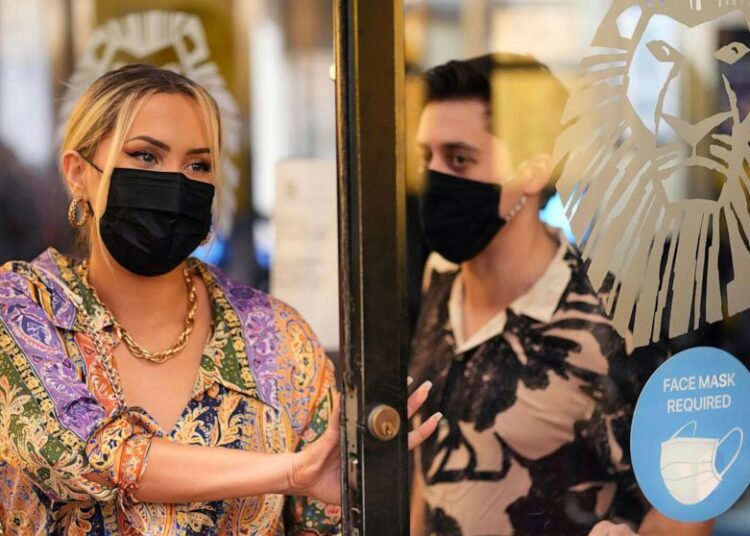NEW YORK – From the frightening, grief-filled early days of the pandemic until perhaps even now, a return to normalcy seemed so out of reach in New York City, where people kept breathing through masks and avoiding indoor gatherings even as other places abandoned COVID-19 safety protocols.
But with the city preparing to lift more mask and vaccination mandates, the question is: Are New Yorkers mentally prepared to turn the page on the virus and give up precautions that got the city through its darkest days?
Mayor Eric Adams has said he plans to lift mask requirements in schools and vaccination mandates in restaurants, bars, gyms, theaters and other cultural and entertainment venues as soon as Monday, with a decision likely to come before the weekend on the timing of the rollback.
There will still be some rules: Masks will still be required on public transportation. Public and private employers in the city will still – for now – be required to bar unvaccinated people from the workplace.
Even with those restrictions, though, New Yorkers will face choices unthinkable just a few months ago. Do they send their kids to school without masks? Can they keep eating at restaurants without the assurance of knowing whether the unmasked person next to them is vaccinated?
Tim Okamura, a city resident who could see one of the city’s temporary morgues for the coronavirus dead from his kitchen window, said it´s been difficult to shake the trauma of the spring of 2020.
In a little more than six weeks, 20,000 people died in the city. Another 20,000 have perished in the two years since then.
“My experience was one of tragedy, of depression, of suffering. So it´s very real for me,” said Okamura, who contracted COVID-19 himself in March 2020, about the same time the first refrigerated trucks for bodies began parking on his street in his old neighborhood in Brooklyn. He learned of his infection the day the virus killed a cousin.
But at some point, he said, his city needs to begin a new chapter.
“Like so many others, I do have fatigue. I´m tired of walking into businesses and putting on a mask or forgetting my mask,” he said according to AP, “If something else happens, well, we know the drill. We can always go back.”
For Audrey Montas, this is not a moment to celebrate.
She understands the impulse people have to put things behind them, but the 48-year-old high school English teacher just got a new kidney in September and feels ignored in the conversations about returning to normalcy and lifting mandates.
“My biggest gripe has been that when they talk about mandates … I´m like, you know you´re leaving immunosuppressed people out. And as far as I know, there are a whole bunch of us out there who live very limited lives, because other people want their freedoms and other people want things to go back to normal.”
Montas worries about what her third-grader could bring home from school if masks are optional, even though her daughter will continue to wear one in the classroom.
“If you don´t want to wear a mask and you don´t want to get vaccinated that means I have to stay home,” she said.
Parents will have to navigate tough decisions, said Maggie Moroff, a policy coordinator with the Advocates for Children of New York.
Families “are going to keep puzzling over this and trying to figure out what makes the most sense for them in their homes and with their students,” she said.
“There are peer pressure issues that we all know exist in school,” she said, “either to wear masks or not to wear masks.”






Discussion about this post